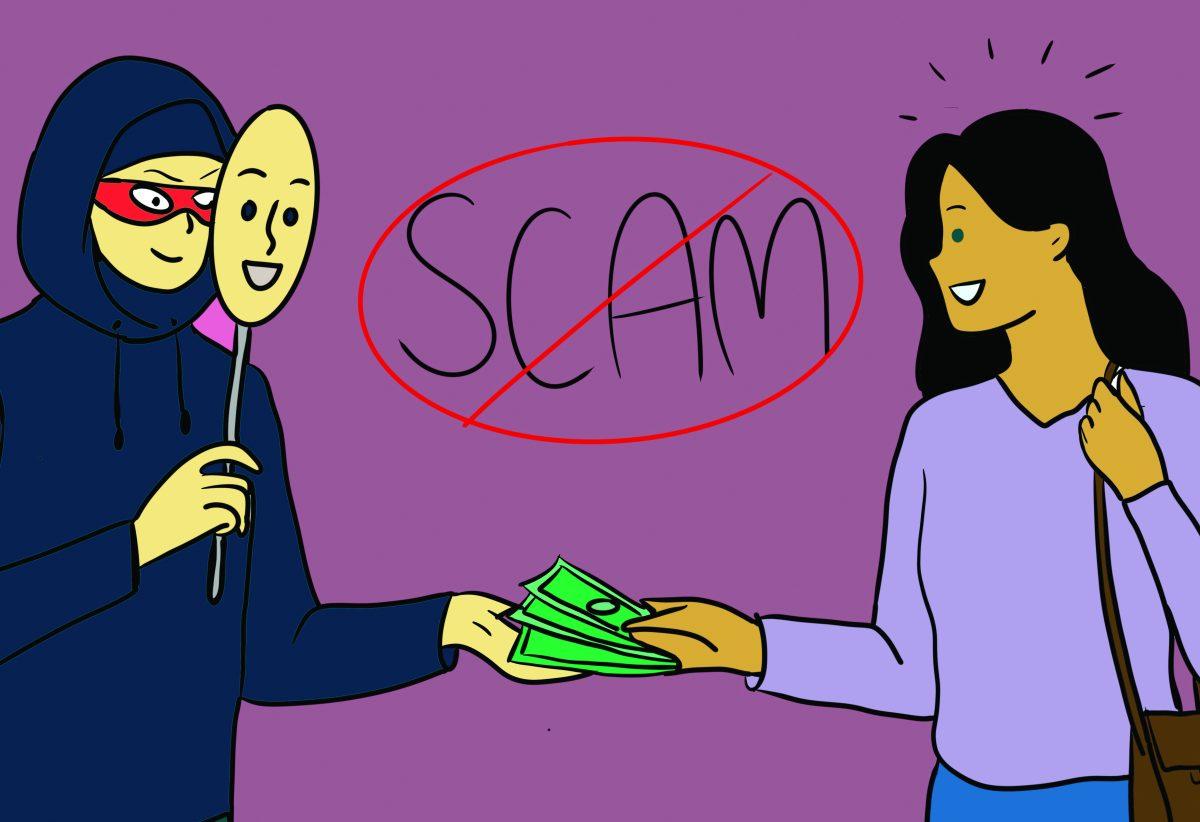Editor’s Note: Information in this article originally published Jan. 30, 2024 has been edited to clarify the number of scam reports that reached Student Legal Services.
Last year, a record-high 45 cases of scams were reported to Student Legal Services. Student Legal and Student Ombuds have spoken out on how to prevent scammers from reaching your information.
Of these 45 cases, Michael Ferrante, staff attorney at Student Legal Services, said 25 were landlord scams, seven were employment scams, three were government-related or someone posed as the IRS or law enforcement, two were nonprofit scams, one was an honor society scam and the rest were miscellaneous.
“Scams have always been present,” Ferrante said. “And they have been changing and who they’re affecting. And the student population [is receiving] more than what the traditional scam population is.”
Ferrante said he believes scams are targeting college students due to lack of financial knowledge.
“What I see a lot of the times with scammers is, they’re taking advantage of a lack of knowledge of checks,” Ferrante said. “They’re taking advantage of that lack of knowledge because scammers will send fake checks to students.”
Mike Giancola, assistant vice chancellor and student ombud, said the most common scams students face are regarding leasing and employment opportunities.
Through a rental scam, scammers will typically ask students to cash a check and then send them the money back. However, Giancola said most of the time, the money they send back to the potential scammer is their own money due to a bad check.
“The student goes to deposit the check, it appears as though the check is cleared because you look on your app, and it’s showing,” Giancola said. “But oftentimes, it takes several days, and sometimes even a week or more for that to fully clear. So by the time the student sends the [money] back to the scammer, they’re out that money because it was a bad check.”
Ferrante said several scammers scam students renting in Raleigh with a 12-month lease.
“Students who are looking to sublease want to get out or find cheaper housing,” Ferrante said. “[Students then] stray to better offers that aren’t realistic due to scams. [Scammers] also take advantage of modern technology like Zelle. But the problem is they’re not reversible, you know. And so if you send a scammer that money, it’s gone.”
Ferrante said other scams involve fake emails for professors offering students jobs and then making the student cash a check for a “favor” and return the bad check to the scammer — leading to money being taken.
Ferrante said scams can come in the form of imitating law enforcement agencies and the IRS through phone calls, which leads to the person being scammed to give personal information and money due to fear.
“We even had students who said they received calls from the Raleigh Chief of Police saying that if they did not send money, they were going to be arrested,” Ferrante said. “The Raleigh Chief of Police is not going to call you individually. But you know, it’s scary, because you see the number for the Raleigh Police Department on your phone, and they say, ‘Check the number, look it up’ right? And then they keep you on the phone, and they’re trying to keep you at it to scare you into giving them money.”
Other common scams consist of scammers posing as students to sell concert tickets and subletting scams.
Once you have been scammed, Ferrante said the possibility of getting your money back is slim to none.
“I would say that, typically, that money is gone, unfortunately,” Ferrante said. “And I have people who’ve asked me if they can sue. If the scammer is a fake person, they don’t know who they are or where they are.”
Ferrante said there is no way to identify a scammer or how to track them due to a fake identity, making it hard to stop scammers from repeating their actions.
If a student ever finds themselves being scammed, Giancola recommends students reach out to Student Legal Services and the police.
“The attorneys at Student Legal are very student-focused and friendly,” Giancola said. “[They] also are aware of some of these scams. So they’re able to look into things to help verify if in fact that did come from a foreign government or a legitimate business contact or if it’s, in fact, a scam.”













